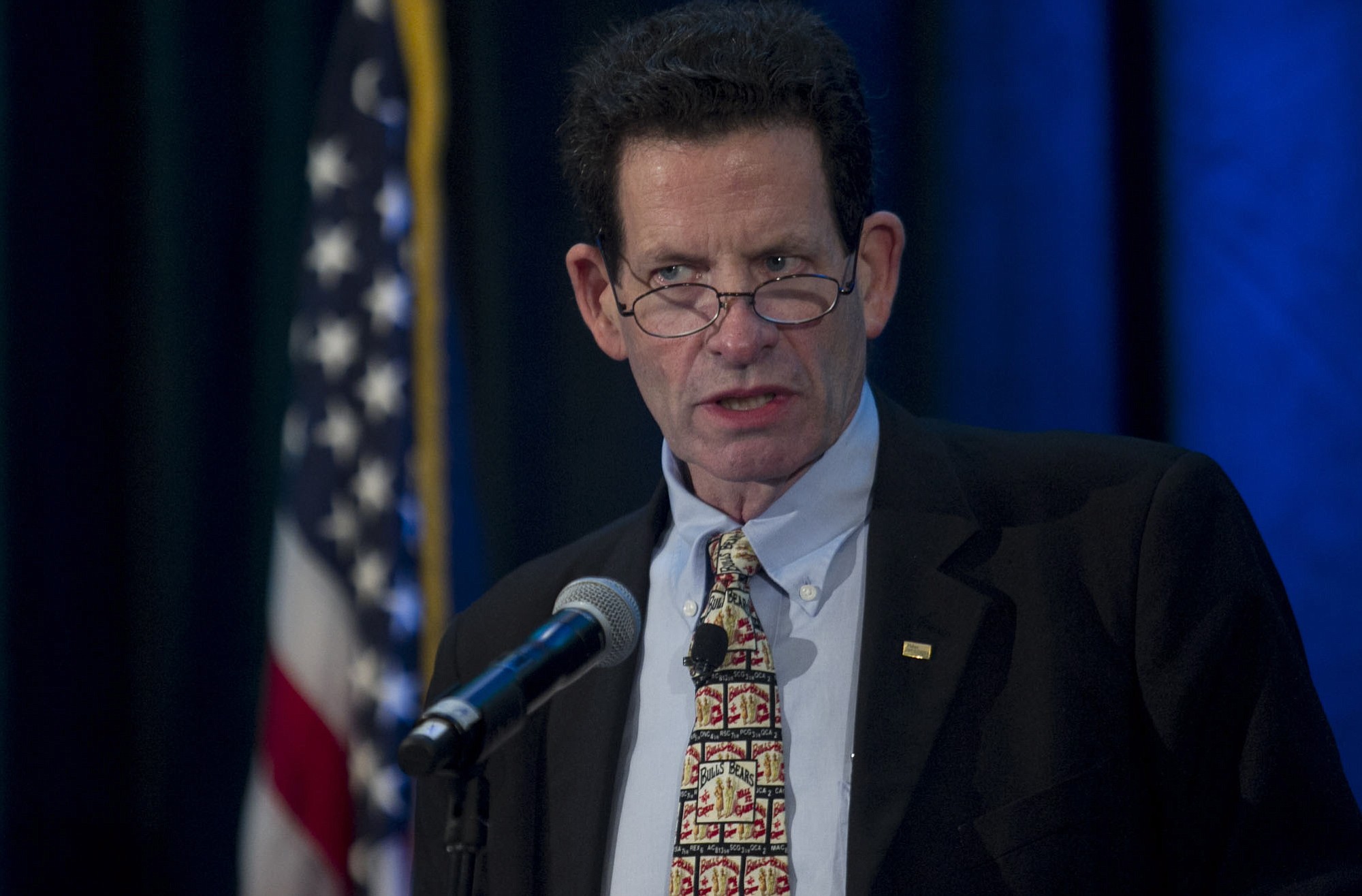Traders often look at the news to anticipate what their next move should be. When will the Federal Reserve raise rates? Is the housing market coming back? Is the jobs report going to be a disappointment?
But Ken Fisher, author of “Beat the Crowd” and chief executive of Fisher Investments which has a campus in Camas, says the trick to navigating the market successfully is to tune it all out.
Fisher, whose firm manages more than $64 billion, says investors are wasting time by worrying about the wrong things. He recently spoke with The Washington Post about what investors should focus on instead. The interview has been edited for length and clarity.
How can investors figure out which headlines matter and which ones should be ignored?
Markets are very effective at prepricing information that will happen in the next three to 30 months. They are not very interested in things 10 to 15 years from now, and they are not really interested in things next week.
That would include things like the bankruptcy of Social Security or global warming’s impact or how millennials are no damn good. It doesn’t matter what the answers to those questions are. Markets won’t price that now. It’s too far off in the future. Likewise, things that are coming at you too soon (like next week), they’re behind you so fast that they cause nothing but very minor ripples.
How can people train themselves to think of events that way?
You start with the presumption that if everybody is worrying about something, you don’t have to worry about it — because they’re doing it for you. You should worry about something else.
Investors are obsessing about when the Federal Reserve will raise interest rates. Is that a mistake?
There’s endless discussion about what will happen when the Fed raises short-term rates. Most people leap to a conclusion, whatever the conclusion is, as opposed to the way I would have them think about it, which is to say: Have they ever raised short-term interest rates before for the first time in a business cycle? And what have markets done after that? That’s thinking independently.
I can tell you for fact the Fed has raised short-term interest rates for the first time in a cycle, every single cycle. And you can find every single one of those, and you can measure what happens three months, six months, 12 months, 36 months, 60 months after. And you know what? Increasing interest rates for the first time in a cycle has never been predictive of anything. People are worrying about something they’ve worried about many times before. Yet history shows us we don’t have to worry about it.
Is it ever possible to know what’s really driving the stock market? Should we bother?
A simple lesson that I think young people in particular should know is that it’s easier in life to determine “what” than “why.” Even in things as discrete as medicine, they’ll find that something works to solve a problem, but they won’t necessarily know why it works.
So why is it that the initial spike in interest rates has no impact in markets that we can discern in any way? I’ve got my theories, but they’re all “whys,” and it’s harder to prove them. Instead of worrying about it, worry about something else. It forces you to look at what are the other goods and bads (in the market) and be an independent thinker.
Any advice for young investors?
Young people don’t have experiences to bias them any which way, but the bad part is they don’t have any helpful experiences either. That’s all the more reason for the young person to read — to learn the lessons of the past as a replacement for the experience.
The question that perennially is asked is: If you were a young investor, what would you invest in?
If you’re a young investor, the best thing to invest in is yourself. Build your capital. Learn your capabilities.
How can people get better at learning from their mistakes?
Our natural human propensity is to do what’s called shunning regret and accumulating pride. Accumulating pride means “I bought it, I’m smart.” Shunning regret is, “I bought it, it went down, I was victimized, it’s not my fault.”
You want to reverse that. Take your successes and presume that they were at least partly luck. For your failures, look for what you did wrong.
That’s counter to the way humans normally want to behave, but this is tailored to reducing your error rate.
I’m in a business where nobody’s right all the time. And if you can’t embrace being wrong a lot, it’s pretty painful.
How can people try to go “against the crowd” without taking on too much risk?
The most important part of investing is not the investment. The most important part is coming to know yourself. If you know your skill set, your interests, your needs and who you are, you won’t make too many mistakes, because you won’t outstep what you know how to do.
Are you really trained to do this? Have you really studied it enough? Or are you taking a crazy risk because you don’t really know what you’re doing and all of your friends told you to do it? This is adult peer pressure.
Warren Buffett has this great line about how it’s a little bit like baseball. You don’t have to swing at everything. It’s about knowing yourself and knowing what you can do with a bat and what ball you can’t hit successfully.



